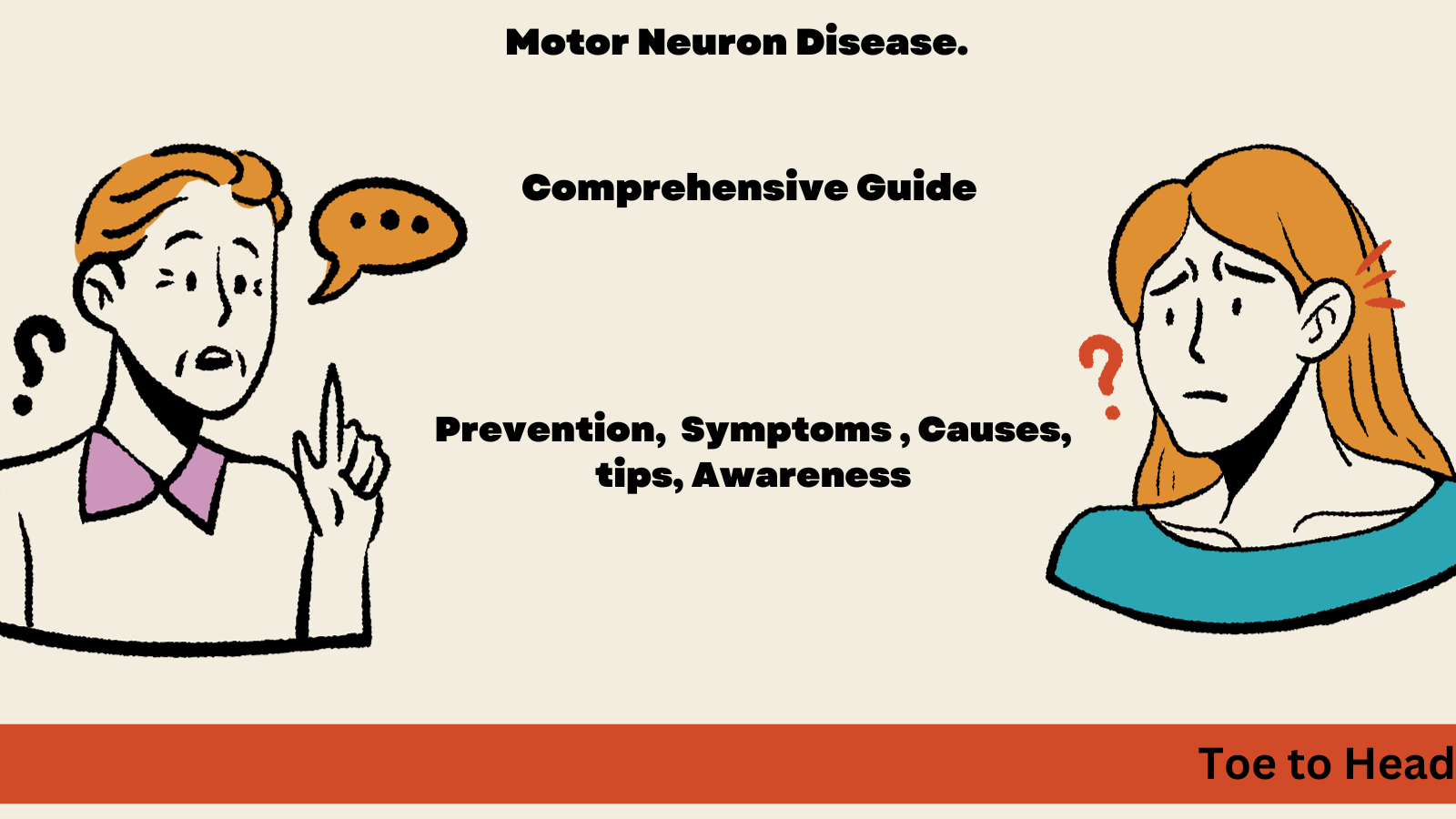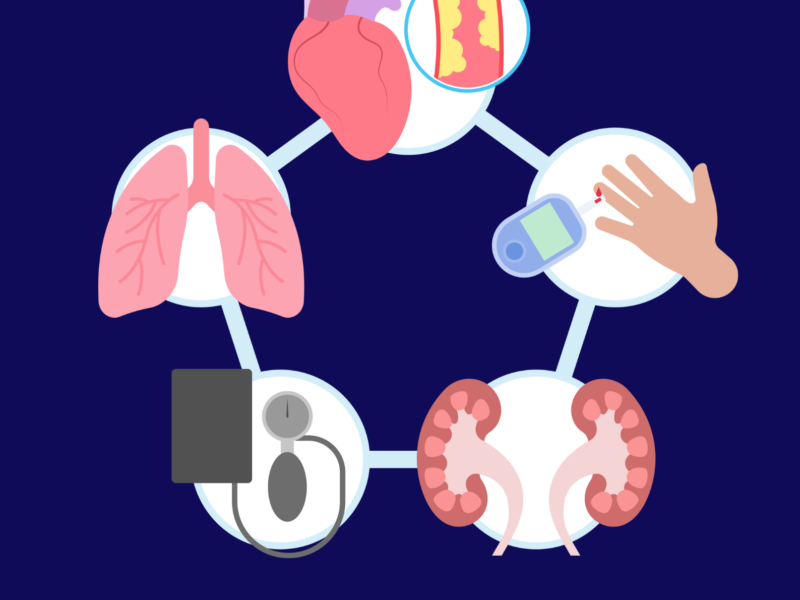Introduction:
Motor Neuron Disease (MND), also known as Amyotrophic Lateral Sclerosis (ALS), is a devastating neurodegenerative condition that affects the nerve cells responsible for controlling voluntary muscle movements. While there is no known cure for MND, there are steps you can take to reduce your risk. In this blog post, we will explore proactive measures and lifestyle choices that may help in preventing Motor Neuron Disease.
Understanding Motor Neuron Disease:
MND is a complex disease, and its exact causes are not fully understood. However, there are several factors that may contribute to its development, including genetics, environmental factors, and lifestyle choices.
Know Your Family History:
Genetic Factors: Some cases of MND are linked to genetic mutations. If you have a family history of MND, it’s essential to be aware of it. Genetic testing and counseling can help identify any potential genetic risk factors.
Maintain a Healthy Lifestyle:
2.1 Diet: A balanced diet rich in fruits, vegetables, and whole grains may have a protective effect against MND. Antioxidant-rich foods can help combat oxidative stress, which is believed to play a role in the development of MND.
2.2 Regular Exercise: Physical activity is essential for overall health and may also have a protective effect against MND. Aim for at least 150 minutes of moderate-intensity exercise per week.
2.3 Maintain a Healthy Weight: Obesity is associated with a higher risk of MND. Maintaining a healthy weight through diet and exercise can be a preventive measure.
Avoid Harmful Exposures:
Environmental Toxins: Some environmental toxins, such as lead and pesticides, have been associated with an increased risk of MND. Minimize exposure to these toxins whenever possible.
Smoking and Alcohol: Both smoking and excessive alcohol consumption are linked to an increased risk of MND. Quitting smoking and limiting alcohol intake can help reduce this risk.
Stay Mentally Active:
Mental Stimulation: Engaging in mentally stimulating activities like puzzles, reading, and learning new skills can help keep your brain active and may have a protective effect against MND.
Regular Health Check-ups:
Early Detection: While there is no single definitive test for MND prevention, regular health check-ups can help detect other health issues that may indirectly contribute to MND risk. Addressing these issues can improve overall health and potentially reduce the risk.
Support Research and Awareness:
Donate and Advocate: Supporting organizations that fund MND research and raise awareness can contribute to the search for better treatment and prevention strategies.

What disease kills motor neurons?
Motor neurons can be affected by various diseases, but one of the most well-known diseases that lead to the death of motor neurons is Amyotrophic Lateral Sclerosis (ALS), also referred to as Motor Neuron Disease (MND). ALS is a progressive neurodegenerative disease that results in the gradual loss of motor neurons, leading to muscle weakness, paralysis, and, ultimately, respiratory failure. It’s a complex and challenging condition with no known cure, but research continues to improve our understanding and management of ALS.
Can motor neuron disease be stopped?
Motor Neuron Disease (MND), specifically Amyotrophic Lateral Sclerosis (ALS), is a progressive neurodegenerative condition that currently has no known cure. However, medical research is ongoing, and various treatments can help manage symptoms, slow disease progression, and improve the quality of life for those affected. While MND cannot be entirely stopped at this time, early intervention and therapies can make a significant difference.
What are the first signs of MND?
The initial signs of Motor Neuron Disease (MND) can vary from person to person, but common early symptoms include muscle weakness, muscle twitching (fasciculations), and muscle stiffness. Some individuals may also experience difficulty with fine motor skills or notice changes in their speech or ability to swallow. It’s important to consult a healthcare professional if you or someone you know exhibits these early signs, as early diagnosis and intervention can be crucial.
What medication is used for upper motor neurons?
There are medications that can help manage some of the symptoms associated with upper motor neuron damage. For spasticity and muscle stiffness, medications like baclofen or tizanidine may be prescribed to alleviate muscle tension and promote comfort. Additionally, some individuals with upper motor neuron conditions may benefit from medications to manage emotional symptoms, such as antidepressants or anxiolytics. These medications can be part of a comprehensive treatment plan in collaboration with a healthcare provider.
Do people recover from motor neuron disease?
Motor Neuron Disease (MND), including ALS, is a progressive and incurable condition, and, in most cases, individuals do not fully recover from it. However, the focus of treatment and care is on managing symptoms, maintaining the best possible quality of life, and slowing the progression of the disease. Multidisciplinary medical care, therapies, and support services play a vital role in enhancing the comfort and well-being of those affected by MND.
What are the symptoms of upper motor neuron damage?
Upper motor neuron damage can manifest in various symptoms, including muscle stiffness (spasticity), muscle weakness, exaggerated reflexes, and difficulty with fine motor skills. Additionally, some individuals may experience changes in muscle tone and coordination, making movements less fluid. Speech and swallowing difficulties may also be present in cases of upper motor neuron damage.
Can upper motor neuron be cured?
Upper motor neuron damage, often associated with conditions like ALS, is typically not curable. However, medical care and therapies can help manage symptoms and enhance the quality of life for those affected. Research into neurodegenerative diseases continues, offering hope for future treatments and potential cures, but as of now, the focus is on symptom management and support for individuals with upper motor neuron damage.
Conclusion:
While the exact causes of Motor Neuron Disease remain the subject of ongoing research, there are steps you can take to reduce your risk and promote overall health. Maintaining a healthy lifestyle, being aware of genetic factors, avoiding harmful exposures, and staying mentally active are all proactive measures that can help in the prevention of MND. Although there are no guaranteed methods to prevent this devastating disease, living a healthy and mindful life can improve your chances of a healthier future.
Please note that while these steps may reduce the risk of MND, they do not guarantee prevention. If you have concerns about MND or its risk factors, consult with a healthcare professional for personalized guidance and assessment.



